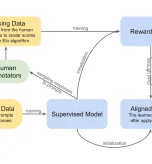
In Defence of Ethical Data Annotation
As artificial intelligence (AI) continues to evolve, so does the demand for high-quality data annotation-the backbone of machine learning. But behind this growing industry lies a critical challenge: ensuring ethical treatment of data annotation workers. Concerns around low wages, limited job security, and exposure to sensitive or harmful content have raised valid ethical questions. These issues have led to negative media coverage, portraying the industry as one that may exploit, rather than empower, its workforce. Addressing these concerns is essential to building responsible AI systems that reflect fairness, transparency, and human dignity.
But there is another side to the story. When managed ethically and thoughtfully, data annotation can provide sustainable, lower-skill employment while serving as an on-ramp to upskill individuals and integrate them into the growing AI ecosystem. Companies like Aya Data are demonstrating that ethical data annotation is not just possible but transformative – offering a model for how the industry can provide meaningful opportunities while maintaining fairness and dignity for workers.
The Problems with the Current Data Annotation Landscape
Negative press surrounding data annotation has often focused on exploitative practices that prioritize cost-cutting over worker welfare. Common criticisms include
- Zero-Hours Contracts: The prevalence of these contracts leaves workers without stability or security, forcing them into precarious employment situations.
- Content Moderation Risks: Annotation roles often intersect with content moderation tasks, exposing workers to disturbing and harmful material without adequate mental health support.
- Lack of Career Development: Annotators are often treated as disposable, with no pathways for advancement or skills development.
These issues are serious and cannot be ignored. However, they are not inherent to data annotation itself but rather symptoms of poor management and unethical practices. With the right principles, data annotation can be reimagined as a force for good.
The Case for Ethical Data Annotation
Aya Data and similar organizations have pioneered an approach to data annotation that prioritizes ethics, fairness, and worker development. At its core, ethical data annotation focuses on creating an environment where annotators are treated as valuable contributors, not disposable labour. Here’s how:
1. Fair Pay and Secure Employment
Ethical data annotation ensures that workers are paid a fair wage that reflects their contributions and provides for a decent standard of living. By offering stable contracts rather than zero-hours arrangements, companies provide the job security that is foundational to worker well-being. At Aya Data, for example, our team of data annotators are either full-time employees or on long-term contracts. We also have an extended team of annotators who provide project-based service. As an added investment in our extended team, we provide ongoing training to upskill them in data annotation, increasing their employability in AI companies.
2. Exclusion of Content Moderation
A cornerstone of ethical annotation is avoiding content moderation tasks that could expose workers to harmful or distressing material. This safeguard protects the mental health and dignity of annotators, ensuring that their work environment is safe and supportive. At Aya Data, for example, we will not take on any content moderation project, irrespective of the potential financial benefits, because our employees’ wellbeing is one of our top priorities.
3. Training and Upskilling
Off-job training is a crucial component of ethical annotation. Companies like Aya Data invest in their workforce by offering training programs that build technical skills, such as programming, machine learning basics, or project management, as well as soft skills. In 2024, Aya Data worked with various service providers, resulting in the development of over 30 custom training sessions for staff and over 620 hours of training. This approach not only benefits workers but also creates a pipeline of talent for the AI industry.
4. Clear Career Paths
Ethical annotation recognizes that data annotators are not just task workers, but vital contributors to the AI development process. It promotes long-term growth by creating clear pathways for career advancement-enabling annotators to move into higher-skilled roles such as quality assurance, data analysis, and even AI model development. At Aya Data, this commitment has led to the internal development of over 15 data scientists in the past three years-one of the highest among AI companies in Ghana.






